No products in the cart.
en

Revolutionizing the screen printing industry through cutting-edge technology and quality service
Phone: +1 847-367-9760
Anatol Equipment Manufacturing Co.
1429 S Shields Dr
Waukegan, IL 60085

Revolutionizing the screen printing industry through cutting-edge technology and quality service
Anatol Equipment Manufacturing Co.
1429 S Shields Dr
Waukegan, IL 60085
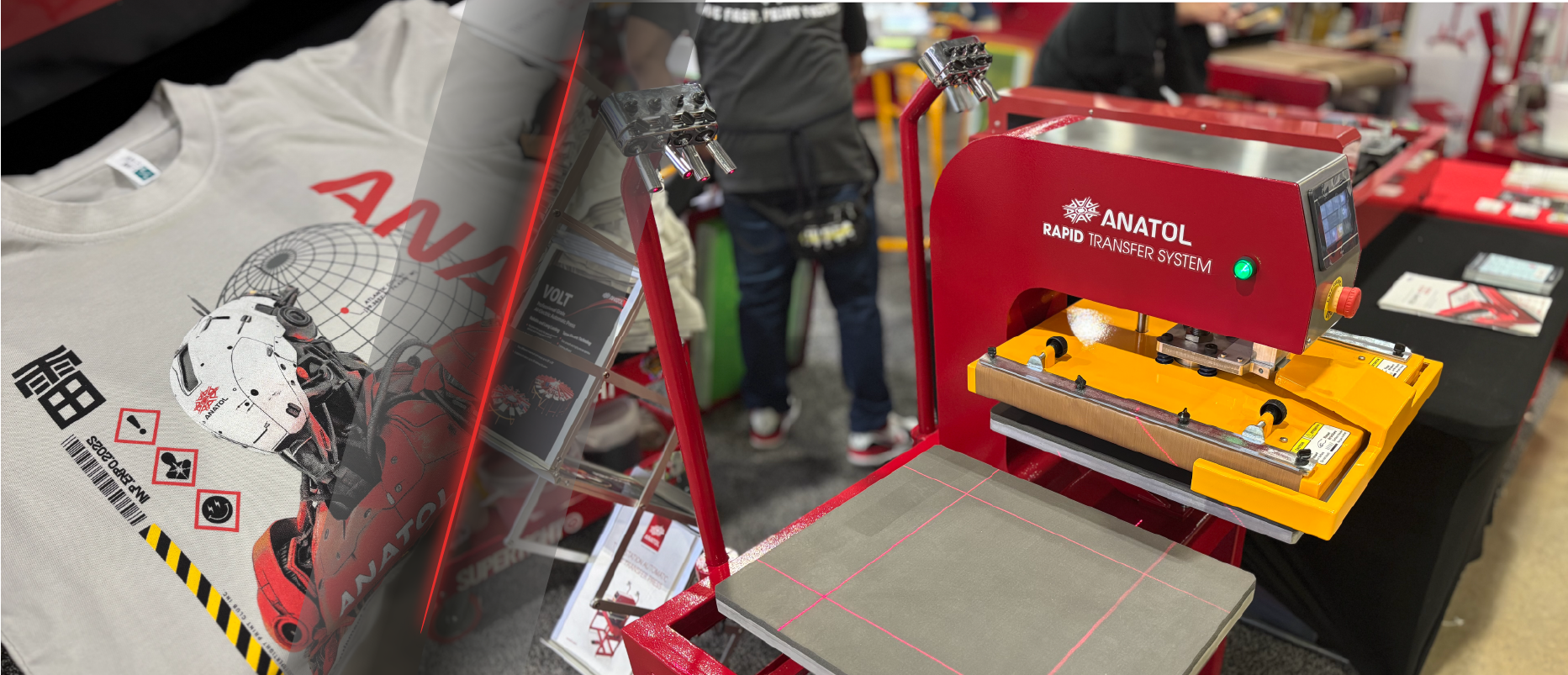
Learn how to use a heat transfer press with our beginner’s guide! Create vibrant, long-lasting designs on T-shirts, hats, and more using Anatol’s user-friendly machines. Follow our step-by-step process to achieve professional results, avoid common mistakes, and start your custom apparel journey today!
Read more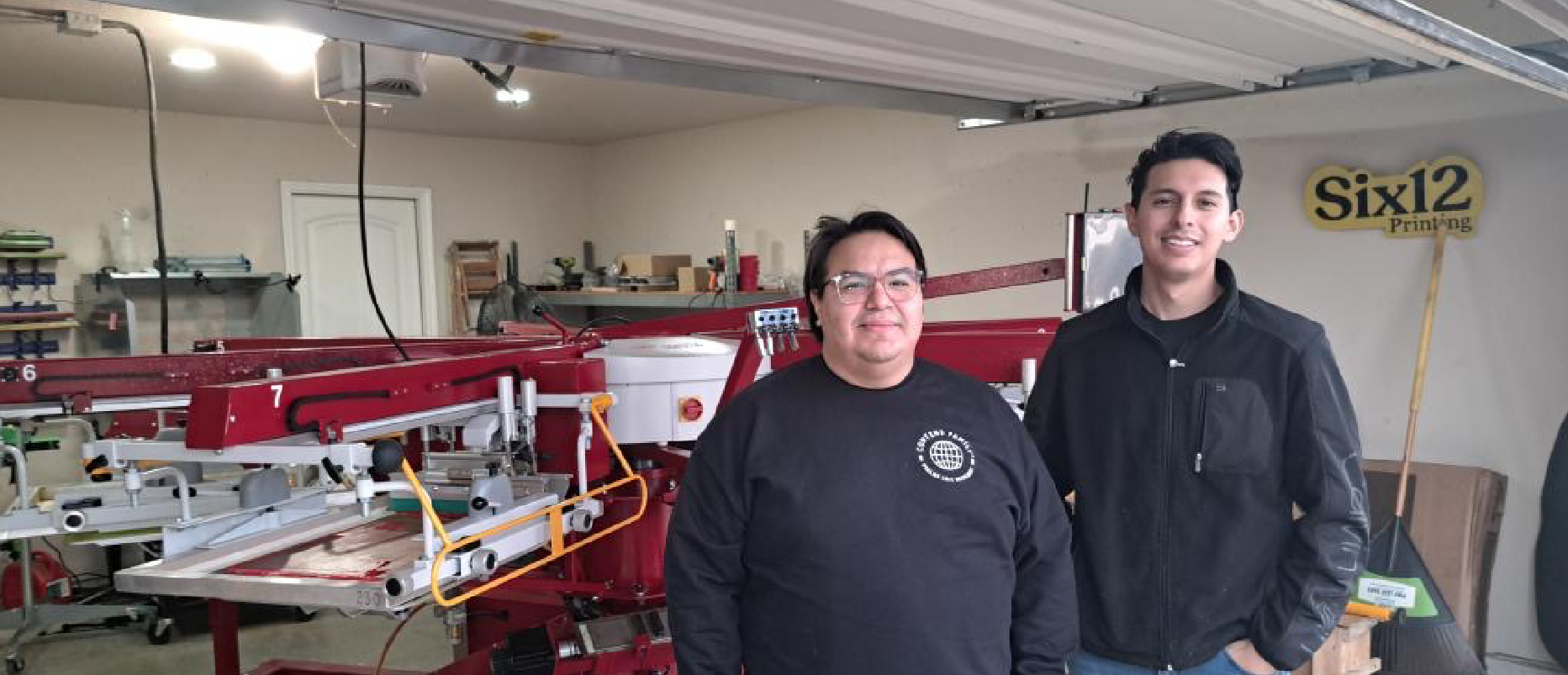
Discover the inspiring journey of Six12 Printing, a Dallas-based screen printing business driven by family, faith, and grit. From humble beginnings in a garage to mastering a 2,500-shirt order, Jon and Joe transformed their passion into a thriving enterprise with Anatol equipment. Now, they’re mentoring aspiring printers and expanding with DTG printing and an eBook on ink mixing. Read their full story of perseverance and community impact!
Read more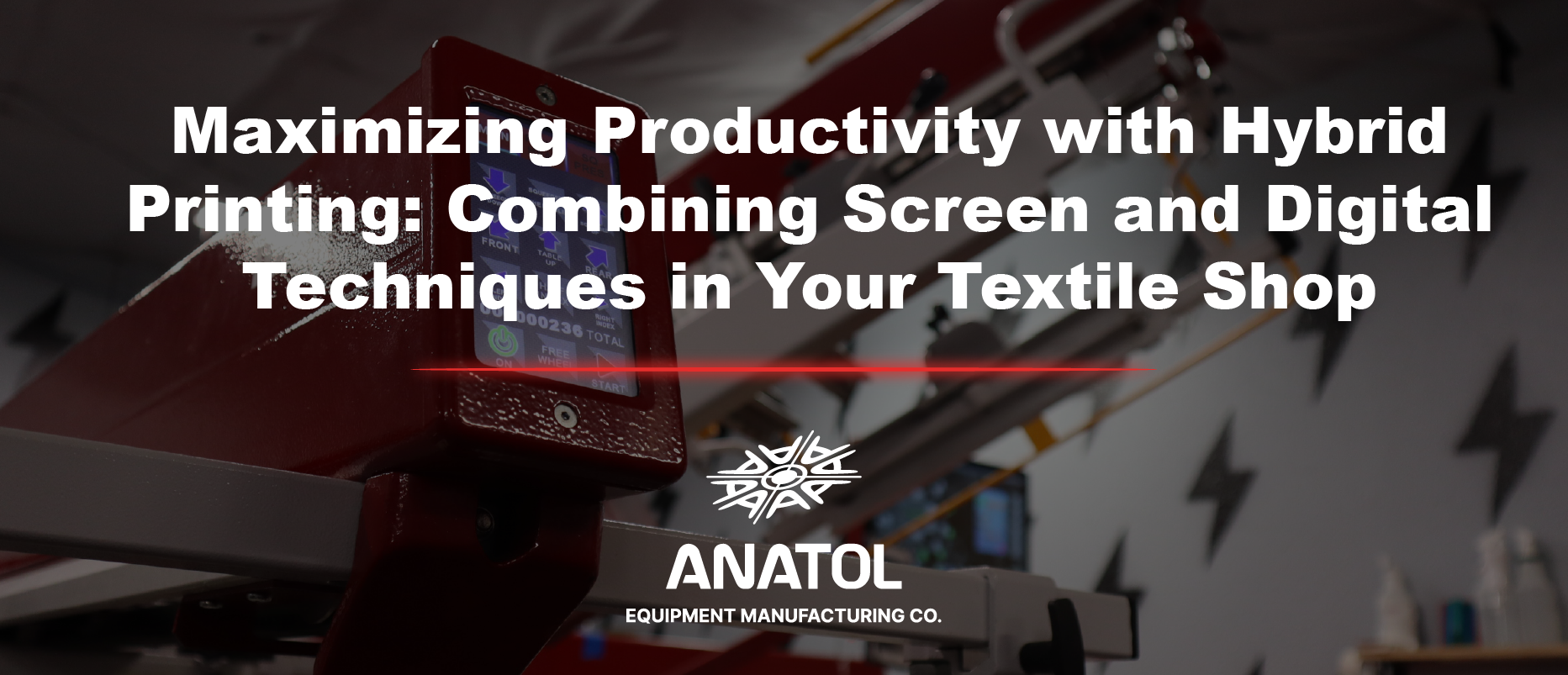
The textile printing industry is constantly evolving. To stay competitive, businesses are always looking for ways to boost productivity, expand their services, and work more efficiently. Some print shops focus only on digital printing, while others rely solely on screen printing. Each method has its own strengths and ideal use cases. Today, many forward-thinking shops […]
Read more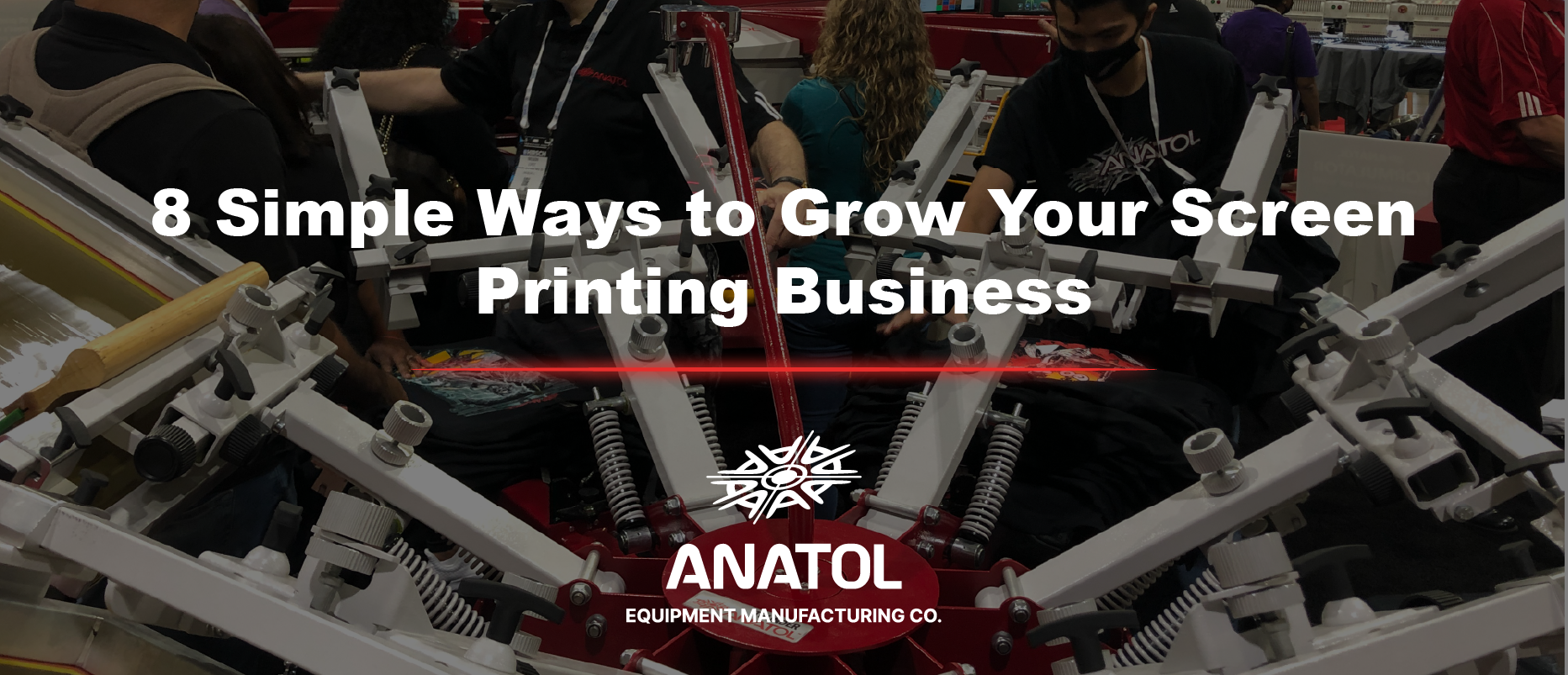
We get it – running a screen printing shop is a labor of love, but it comes with challenges. Slow seasons and tight budgets can test your passion. At Anatol Equipment, we’ve worked with screen printers from small startups to large shops, and here’s the good news: you can grow without a large budget. With […]
Read more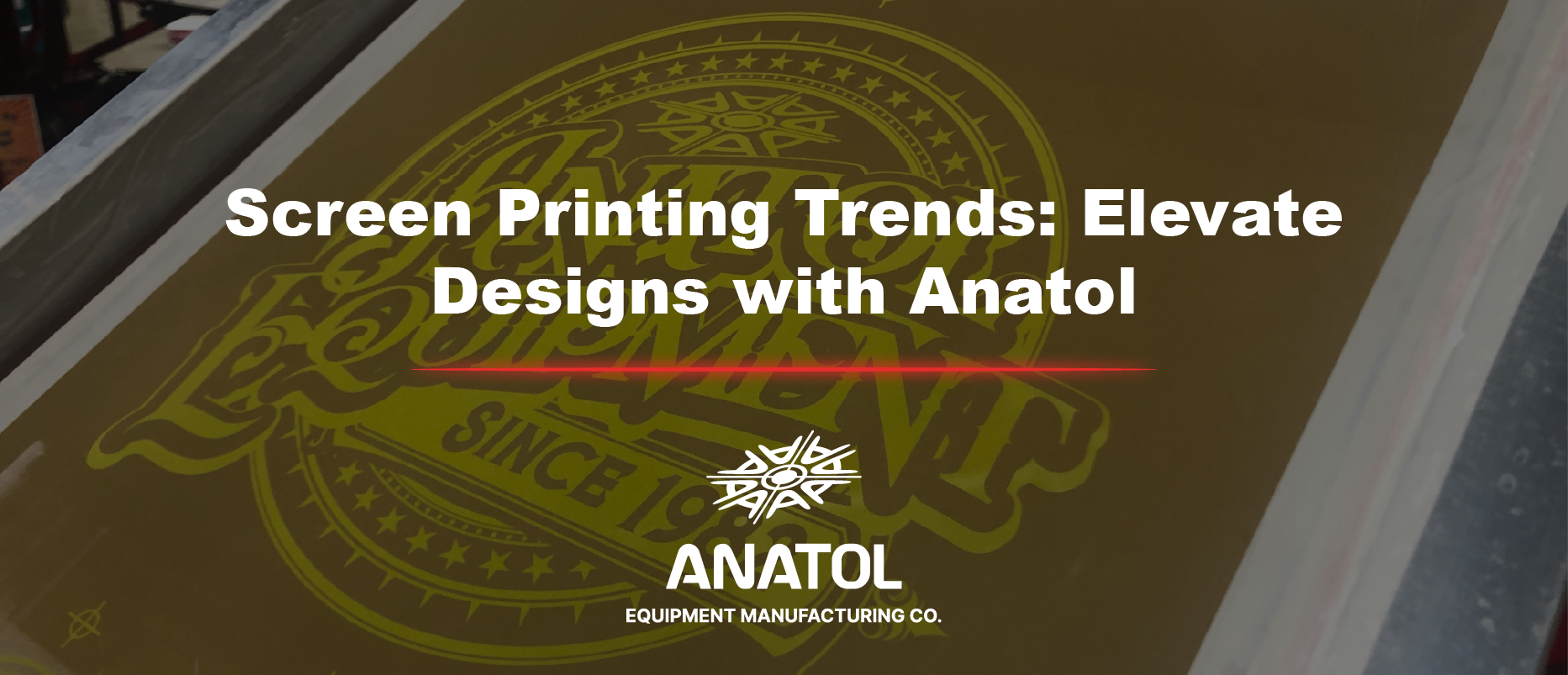
The printing industry is thriving, driven by innovation and creativity. Screen printing trends in 2025, including specialty inks and eco-friendly textile printing, help printers produce distinctive clothing.Today, we are going to look into some of the trends that are influencing not only the day-to-day process for printers, but also the future of the industry as […]
Read more
Selecting the right screen printing ink is essential to get bright, long-lasting, and professional results in your projects. At Anatol, we understand that ink selection is as important as selecting the right screen printing press or mesh. The type of ink you use affects print quality, durability, feel, and eco-friendliness. This guide covers the best […]
Read more
Traditional pneumatic screen printing presses rely on air compressors, which can cause issues like air leaks, moisture buildup, and high maintenance costs. The Anatol VOLT, the industry’s first all-electric screen printing machine, transforms your print shop by eliminating compressed air. It offers unmatched screen printing energy efficiency, precision, and ease of use. This article highlights […]
Read more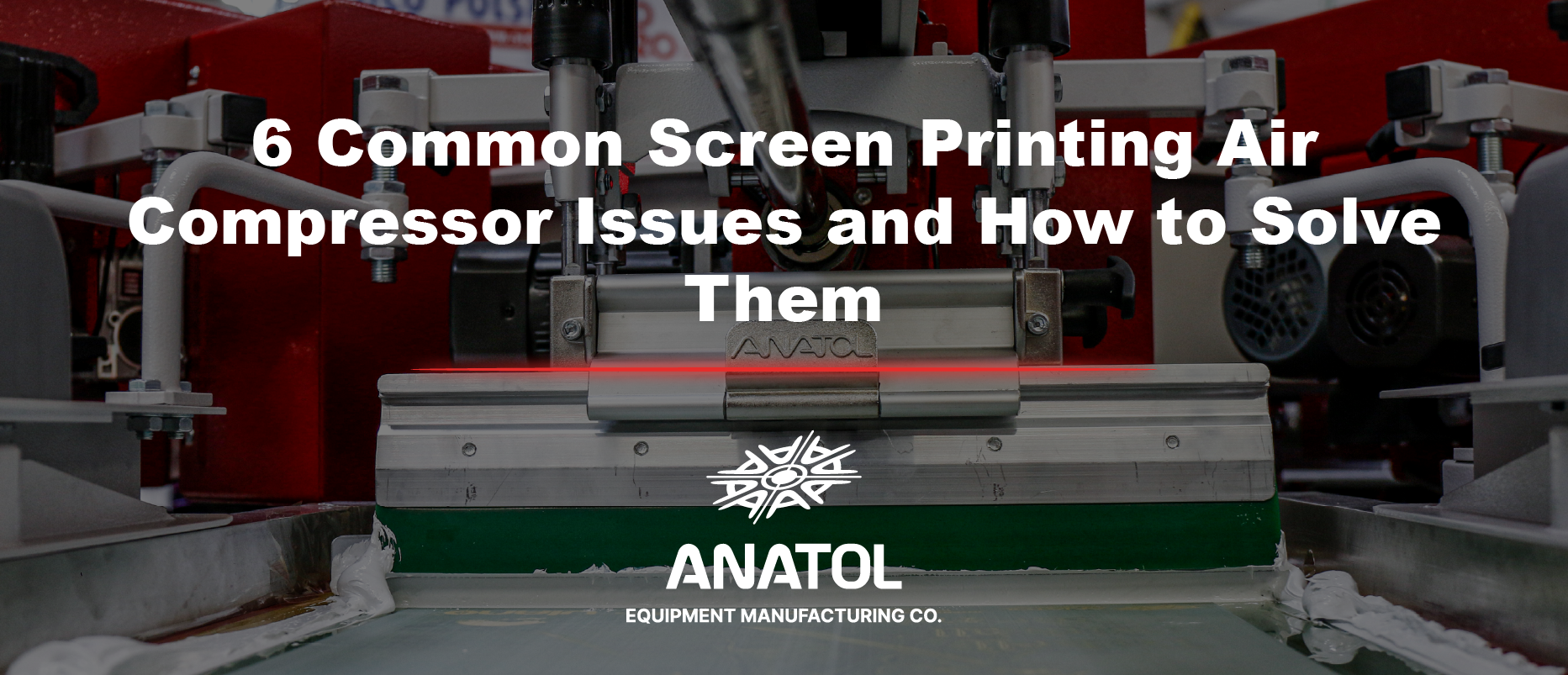
Air compressors and pneumatic systems are essential for many screen printing shops. They power automatic presses and other equipment to keep production efficient. However, issues such as low air pressure, moisture buildup, and air leaks can interrupt your work, reduce print quality, and increase maintenance costs. In this guide, we will review six common air […]
Read more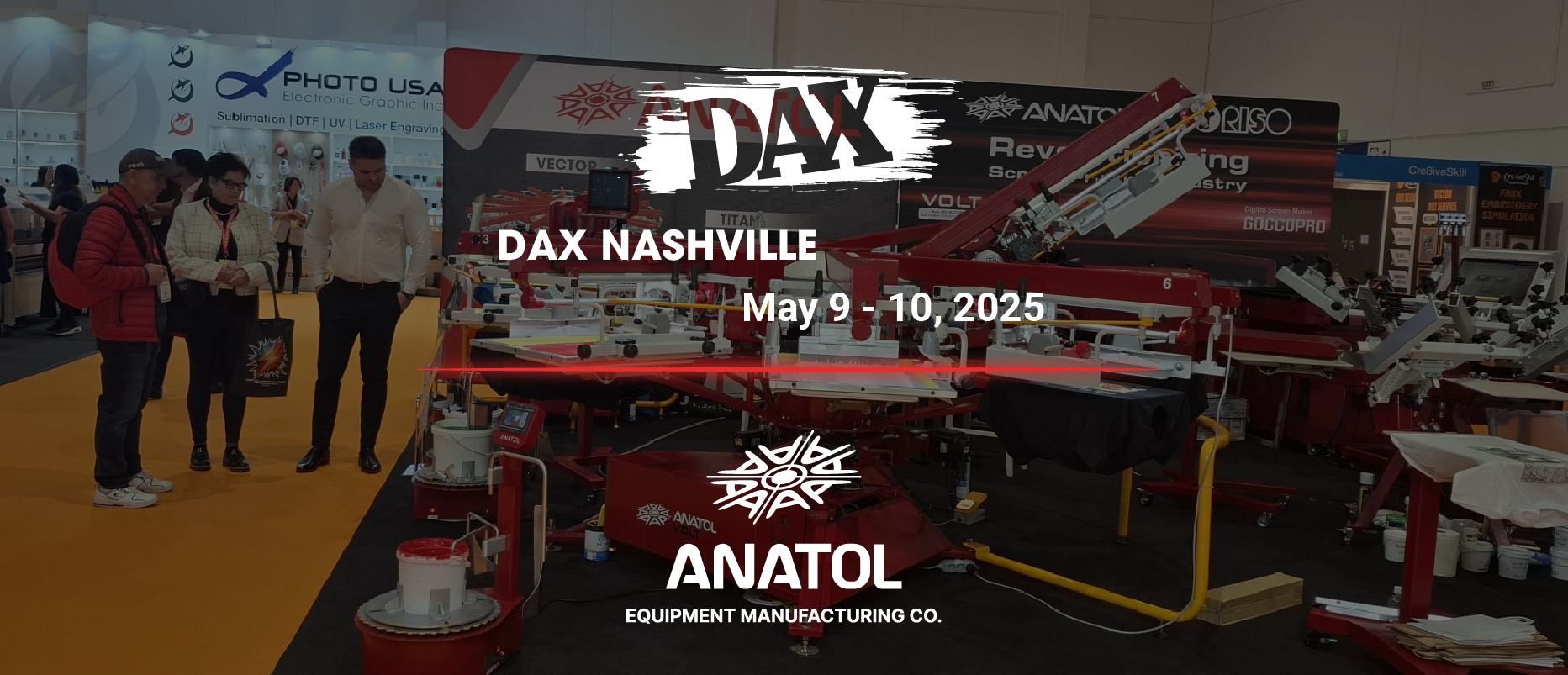
The Decorated Apparel Expo (DAX) 2025 in Nashville was a significant event for Anatol. It provided a unique opportunity to connect with screen printing professionals in an intimate, focused setting. The event took place at the Farm Bureau Exposition Center on May 9–10. It focused on education, hands-on demonstrations, and meaningful one-on-one interactions. Anatol’s Featured […]
Read more
FESPA Global Print Expo 2025 in Berlin brought together leaders, innovators, and enthusiasts from the global screen printing industry. Anatol was proud to take part in this exciting event. We showcased our latest screen printing technology and connected with professionals seeking to improve their screen printing operations. Showcasing Cutting-Edge Equipment Visitors to the Anatol […]
Read more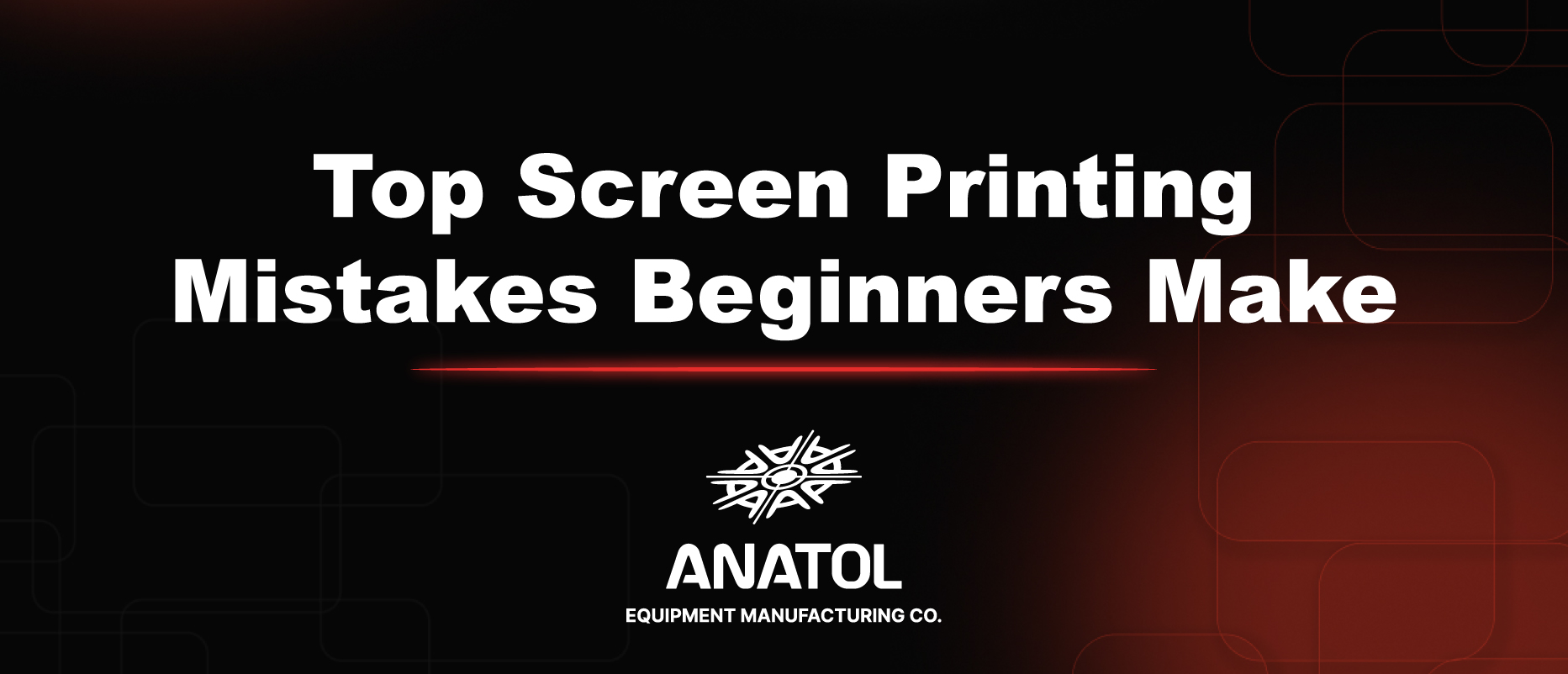
Top Screen Printing Mistakes Beginners Make Screen printing is an exciting craft that allows you to create vibrant, custom designs. However, beginners often face common screen printing mistakes that can lead to frustrating results. From blurry prints to ink smudging, these errors can compromise print quality and waste valuable resources. Understanding these pitfalls is key […]
Read more
Visit Anatol at DAX 2025 Nashville: Innovation Meets Southern Hospitality Big news for the screen printing industry: The Decorated Apparel Expo (DAX) is coming to Nashville, Tennessee, for the very first time! Taking place May 9–10, 2025, this exciting debut in Music City is more than just a textile printing trade show — it’s your […]
Read moreYour message was successfully sent!